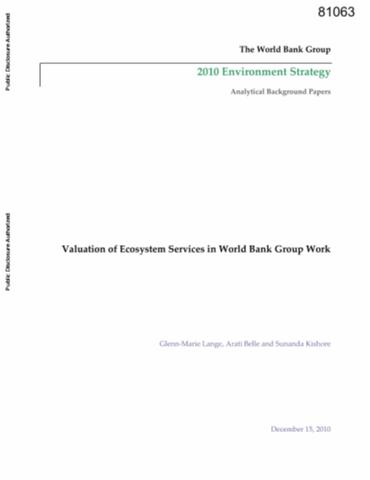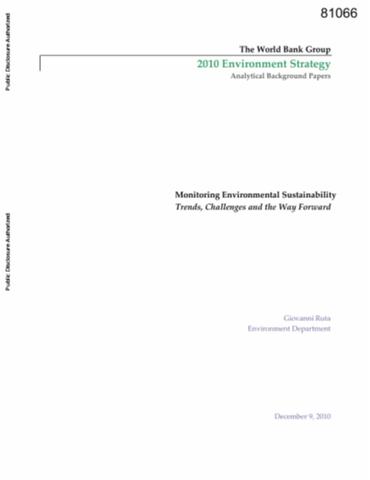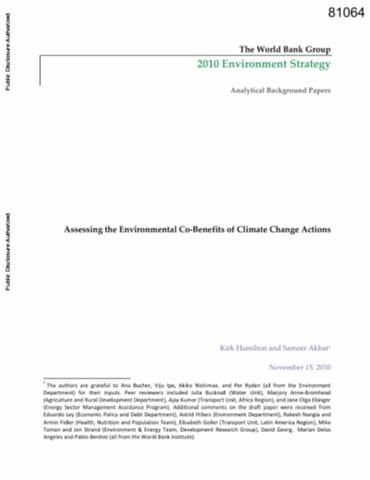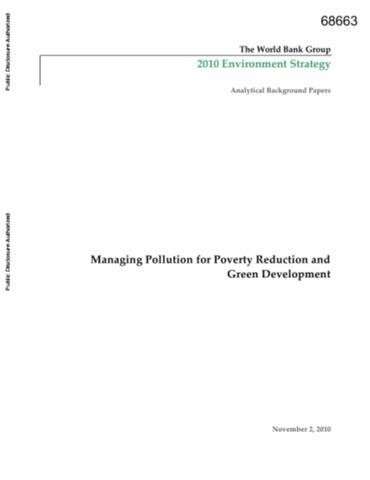Analysis of land change with parameterised multi-level class sets : exploring the semantic dimension
Een veelvoorkomend probleem in de landdynamiek is dat na verloop van tijd kennis vordert, technologie ontwikkelt en beleidsdoelstellingen veranderen. Dit betekent dat met elke kartering die wordt uitgevoerd, met een voor dat doel specifiek ontworpen classificatie, een nieuwe basis dataset wordt gemaakt in plaats van een continue gegevensreeks.
Methods and approaches used for assessing ecosystem services provided by grazing systems
To date, scientific literature provided a vast amount of studies on Ecosystem Services (ES) underpinning their benefits to human well-being. Livestock grazing systems occupy a vast area of the terrestrial surface and are essential to the livelihood especially for vulnerable communities. Grazinglands are able to provide a wide array of ES depending on management practices and intensity. In this perspective and according to the Millennium Ecosystem Assessment (MA) framework, the paper reviews the methods and the approaches used in the analysis of the main ES provided by grazing systems.
The challenges of rehabilitating denuded patches of a semi-arid environment in Kenya
Land degradation is a major problem in the semi-arid environments of Sub-Saharan Africa. Fighting land degradation is essential to ensure the sustainable and long-term productivity of the habited semiarid lands. In Kenya, grass reseeding technology has been used to combat land degradation. However, despite the use of locally adapted perennial grass species namely Cenchrus ciliaris (African foxtail grass), Eragrostis superba (Maasai love grass) and Enteropogon macrostachyus (Bush rye) failure still
Valuation of Ecosystem Services in World Bank Group Work
In 2005, the Millennium Ecosystem Assessment (MA, 2005) provided the first comprehensive report on global ecosystems, the dependence of human societies on the services provided, current state, and likely future trajectory. The MA identified the failure to value ecosystem services as a major contributing cause. The 2001 environment strategy did not explicitly address environmental valuation, although the focus on poverty and environment implies a need for valuing natural resources and environmental services.
Monitoring Environmental Sustainability
This report presents a concise review of the major environmental and natural resources issues at the global and national level over the coming two decades. The environmental issues reviewed include air pollution and deterioration of air quality, greenhouse gas emissions and climate change, water quality, scarcity and access, land and soil degradation, deforestation and forest degradation, natural disaster, loss of biodiversity and protected areas, and governance and institutions for environmental and natural resource management.
Mapuche: resistencia y propuestas
* Elvis Espinoza Gutiérrez
En Chile, este año una treintena de mapuche estuvieron en huelga de hambre demandando cambios en la ley antiterrorista por la que se encuentran detenidos en varias cárceles. Este artículo explica el contexto de ese conflicto.
Susceptibilidad del suelo a la degradación en parcelas con manejo agroforestal Quesungual en Nicaragua = Susceptibility to soil degradation in plots under Quesungual agroforestry management in Nicaragua
Durante tres años se establecieron en un Andisol del municipio de Somotillo (Nicaragua) los sistemas
de usos de tierra: tradicional del productor (tala, quema, fertilización y siembra de maíz + fríjol);
agroforestal Quesungual (SAQ) (no quema, árboles nativos en regeneración natural y siembra de
maíz + fríjol); residuos de cultivos (manejo de cobertura con residuos de cultivos); y testigo bosque
secundario (tacotal) de aproximadamente cinco años de edad no cultivado. Se hicieron muestreos de
The effect of rural land registration and certification programme on farmers’ investments in soil conservation and land management in the Central Rift Valley of Ethiopia.
Land degradation is a major problem in almost all the countries. In most of the developing countries, population pressure and small farm sizes, land tenure insecurity, land redistribution, limited access to credits and limited education are the factors leading to unsustainable land management. In Ethiopia, among many factors, tenure insecurity is considered as a main problem for land degradation. The frequent land redistribution and the changing pattern of land ownership with the change in Government made the farmers insecure of their land resulting in not making land related investments.
Assessing the Environmental Co-Benefits of Climate Change Actions
This internal background paper has been prepared to help inform the 2010 environment strategy with respect to a proposed way forward on use of country systems. The World Bank Group environment strategy is built on three pillars: leveraging natural resources for growth and poverty reduction; managing the environmental risks to growth and development; and transforming growth paths. As part of its exploration of these three pillars, the strategy considers the question of environmental co-benefits of climate change actions.
Managing Pollution for Poverty Reduction and Green Development
The World Bank Group (WBG) has been active in public and private sector pollution management for the past several decades. The Bank has mainstreamed environmental health concerns into its rural and urban services through projects that improved the management of solid and hazardous waste and wastewater, and controlled pollution related to a large variety of sectors including transport, industry, energy, and mining, with each decade having its flagship issues and projects.
Forest governance and implementation of REDD+ in India
This report indicates that the Forest governance is identified as critical to the success of REDD+.
Implementation of robust REDD+ strategy is possible through Community Based Forest Governance.
Report talks on Reducing Emissions from Deforestation and Degradation (REDD+) which is a global mechanism that aims at sustainable forest management (SFM) through protecting forests and enhancing carbon sequestration.
Report briefly describes The Scheduled Tribes and Other Traditional Forest Dwellers (Recognition of Forest Rights) Act, 2006










